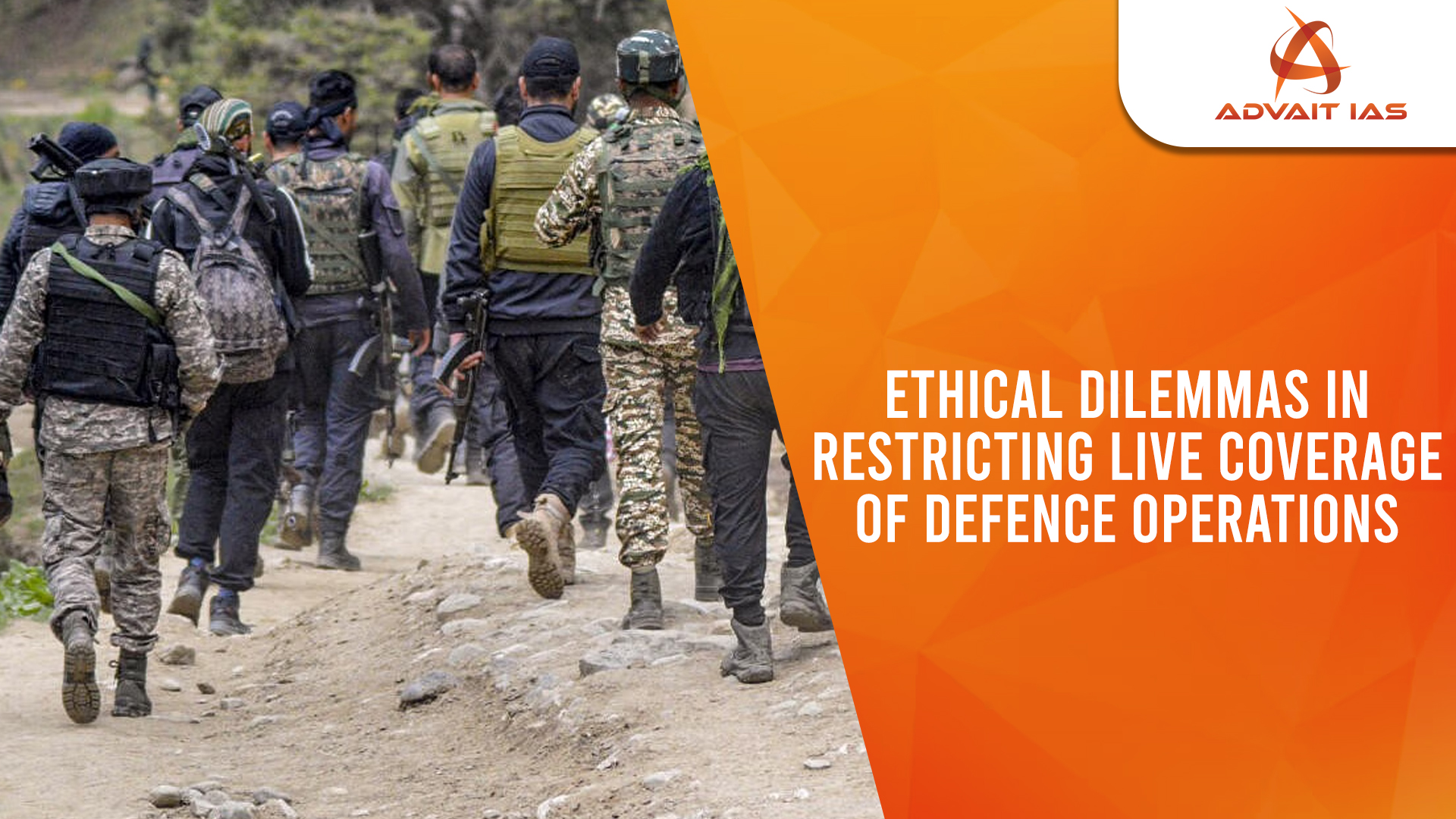The Ministry of Information & Broadcasting (I&B) issued an April 2025 advisory urging media to avoid live coverage of defence operations post-Pahalgam attack.
- Justification: Operational secrecy and national security.
- Criticism: Potential threat to press freedom, transparency, and democratic accountability.
Ethical Dilemmas in Restricting Live Coverage
- National Security vs. Press Freedom
- Prevents tactical leaks (e.g., 26/11 Mumbai) but challenges the media’s watchdog role.
- Operational Effectiveness vs. Public Transparency
- Secrecy helps military success (e.g., Kargil), but public loses visibility on government actions.
- Legal Compliance vs. Ethical Journalism
- Legal restrictions vs. ethical obligation to report truth (e.g., human rights violations).
- State Authority vs. Media Autonomy
- Regulating reporting helps fight disinformation but risks normalizing censorship.
- Immediate Safety vs. Long-Term Democratic Health
- Temporary security gains may lead to long-term suppression of dissent and oversight.
Regulating Media is Critical for National Security & Democracy
- Avoids Hostile Exploitation
- Real-time coverage can help enemies (e.g., during 26/11 and Kargil).
- Protects Security Personnel
- Limits exposure of troop movements and strategies.
- Maintains Public Trust via Controlled Transparency
- Prevents misinformation and panic (e.g., Kandahar hijacking).
- Ensures Legal-Ethical Alignment
- Supports responsible journalism without jeopardizing national safety.
Philosophical Perspectives
- Utilitarianism: Ends justify means—restrict if it prevents harm, but watch for overreach.
- Deontology (Kantian Ethics): Truth-telling is a moral duty; censorship must be universally justified.
- Virtue Ethics: State must act with prudence; media must balance courage with restraint.
- Communitarian Ethics: Media should prioritize collective safety over individual freedom.
Solutions for Balancing Security and Ethical Journalism
- Structured Official Briefings
- Adopt the Kargil model—accurate, safe, and timely information dissemination.
- Self-Regulatory Media Guidelines
- Voluntary conduct codes and UK-style D-Notice collaboration system.
- Legal Safeguards
- Include sunset clauses and judicial oversight to prevent permanent censorship.
- Media–Security Force Collaboration
- Joint training, embedded reporting with ground rules, trust-building.
- Public Awareness Campaigns
- Educate on the dangers of real-time reporting; promote ethical war journalism.
A balanced democracy requires neither total press freedom nor absolute state control. Collaborative regulation, transparency, and mutual trust between state and media ensure both security and liberty thrive.






